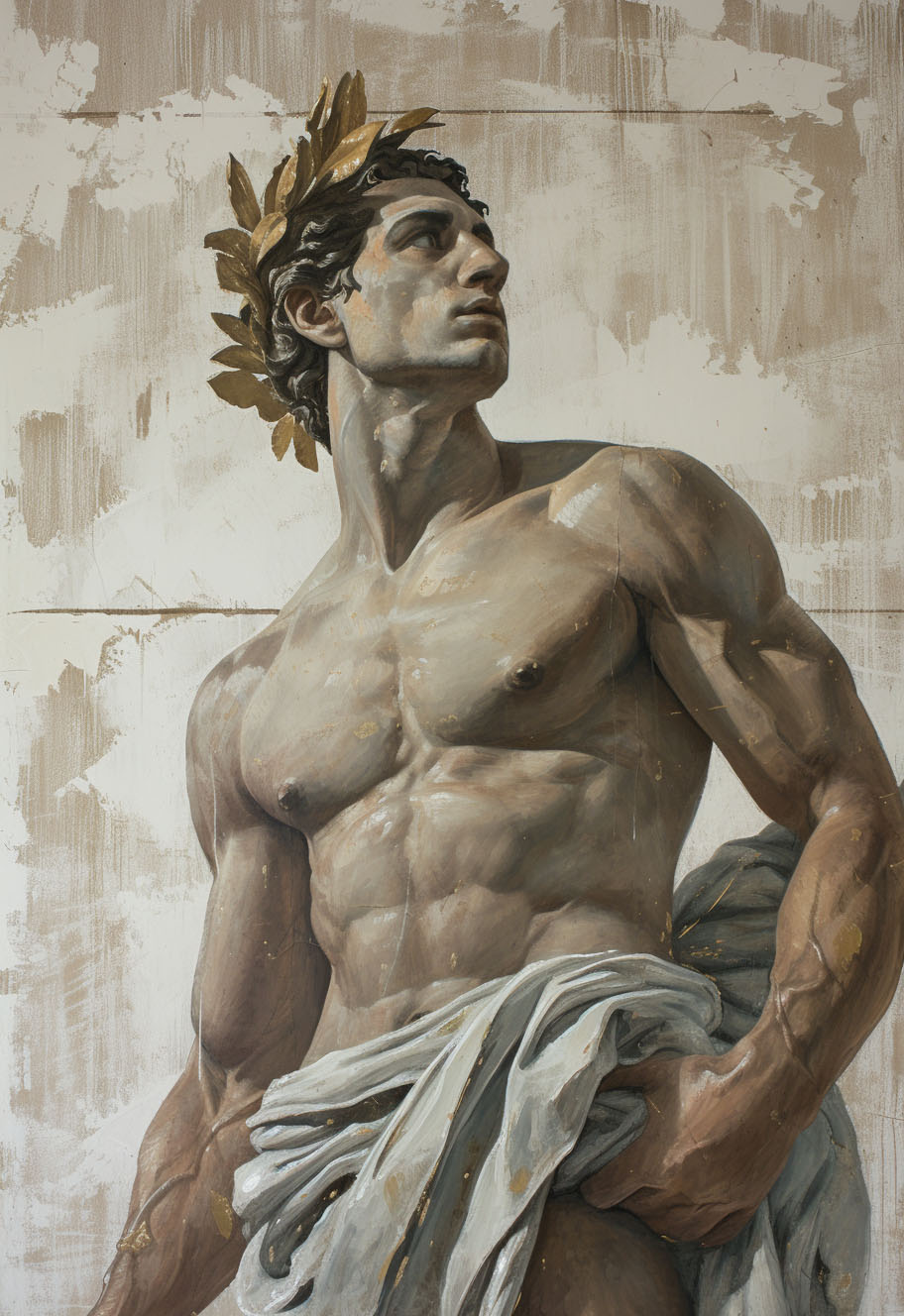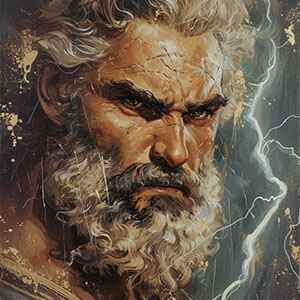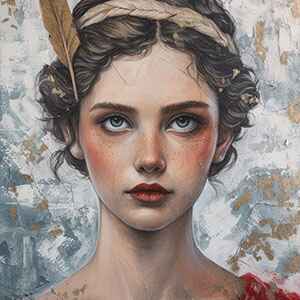Apollo
In Greek mythology, Apollo is one of the twelve Olympian deities, often depicted as the god of music, poetry, prophecy, archery, healing, and the sun. He is a complex and multifaceted god with various attributes and roles. Here are key aspects of Apollo in Greek mythology:

Parentage: Apollo is the son of Zeus, the king of the gods, and Leto, a Titaness. His twin sister is Artemis, the goddess of the hunt.
Birth and Delos: Leto faced challenges during her pregnancy due to the jealousy of Hera. Delos, a floating island, provided a refuge for Leto to give birth to Apollo and Artemis. Apollo's birth is associated with light and radiance.
Attributes and Symbols: Apollo is often depicted as a handsome and youthful god with a lyre, a musical instrument. His symbols include the laurel wreath, the sun, the bow and arrow, and the Python, a serpent he slayed.
God of Music and Poetry: Apollo is a patron of the arts, particularly music and poetry. He is credited with inventing the lyre and is associated with inspiring poets and musicians. The Muses are often depicted as his companions.
Oracle at Delphi: Apollo is closely linked to the Oracle of Delphi, one of the most famous oracles in ancient Greece. The priestess, known as the Pythia, would deliver prophecies inspired by Apollo.
Archery and the Python: Apollo is a skilled archer, and he famously slew the serpent Python, a creature that guarded the Oracle of Delphi. This event marked the establishment of Apollo's sanctuary at Delphi.
God of Healing: Apollo is associated with healing, and his son Asclepius became the god of medicine. Apollo's sanctuary at Delos had a famous healing temple, and he was invoked for the prevention and cure of diseases.
Solar Symbolism: Apollo is often associated with the sun, and he is sometimes called Phoebus Apollo ("shining" or "radiant"). His daily journey across the sky in a chariot represents the sun's movement.
Myth of Daphne: One of Apollo's myths involves his pursuit of the nymph Daphne. To escape Apollo's advances, Daphne was transformed into a laurel tree, and Apollo adopted the laurel as his sacred tree.
Mortal Offspring: Apollo had numerous mortal offspring, including Orpheus, the famed musician and poet, and Asclepius, the god of healing.
Role in the Iliad: Apollo is a significant figure in Homer's "Iliad." He supports the Trojans in the Trojan War and is responsible for guiding Paris's arrow that kills Achilles.
Cultural Impact: Apollo's influence extends into art, literature, and philosophy. He is regarded as a symbol of artistic inspiration, intellectual pursuits, and enlightenment.
Roman Equivalent: In Roman mythology, Apollo is identified with Phoebus Apollo, often simply referred to as Apollo.
Apollo's diverse roles as a god of music, prophecy, healing, and the sun showcase the breadth of attributes found within the Greek pantheon. His connection to both the divine and mortal realms emphasizes the interconnectedness of various aspects of Greek culture and belief systems.
Immediate Family
Quick Facts
- He is the son of Zeus and Leto.
- His twin sister is Artemis.
- He is associated with music, poetry, prophecy, archery, healing, and the sun.
- Apollo is a skilled archer who slew the serpent Python.
- He is a patron of the arts, inspiring poets and musicians.
- Apollo is linked to the famous Oracle of Delphi.
- He is associated with solar symbolism and is called Phoebus Apollo.
- Apollo's pursuit of Daphne resulted in the laurel becoming his sacred tree.
- He had mortal offspring, including Orpheus and Asclepius.
- In the Iliad, Apollo supports the Trojans and guides the arrow that kills Achilles.
- Apollo's cultural impact extends into art, literature, and philosophy.
- In Roman mythology, he is identified with Phoebus Apollo.
Further Reading
Art &
Architecture
Ancient Greek art and architecture, with its harmonious proportions and timeless elegance, continue to inspire awe and admiration millennia later.
Discover
Greek Mythology & Mythical Characters
Greek mythology, a rich tapestry of gods, heroes, and mythical creatures, captivates the imagination with its tales of love, betrayal, and epic adventures that delve into the depths of the human psyche.
Discover
Ancient Greek History
Ancient Greek history, marked by remarkable achievements in democracy, philosophy, and warfare, shaped the foundation of Western civilization, leaving an indelible legacy of innovation and cultural influence that continues to resonate to this day.
Discover
Ancient Greek Olympics
The ancient Greek Olympics, held in Olympia every four years, celebrated athleticism, unity, and cultural pride, serving as a testament to the enduring spirit of competition and excellence that transcends time and borders.
Discover
Ancient Greek Wars
Ancient Greek wars, such as the Persian Wars and the Peloponnesian War, were pivotal conflicts that shaped the course of history, highlighting the struggle for power, independence, and the clash of civilizations in the ancient Mediterranean world.
Discover
Ancient Greek Culture and Society
Ancient Greek culture and society, characterized by its emphasis on art, philosophy, and civic engagement, fostered a vibrant intellectual and social landscape where innovation flourished, democracy thrived, and the pursuit of knowledge and excellence was celebrated as fundamental values of civilized life.
Discover

